| Listing 1 - 10 of 44 | << page >> |
Sort by
|
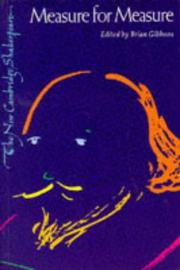
ISBN: 0521222273 0521294010 Year: 1991 Publisher: Cambridge Cambridge University press
Abstract | Keywords | Export | Availability | Bookmark
 Loading...
Loading...Choose an application
- Reference Manager
- EndNote
- RefWorks (Direct export to RefWorks)
Brothers and sisters --- Chastity --- Drama. --- Drama --- Vienna (Austria) --- Wien (Austria) --- Vi︠e︡denʹ (Austria) --- Vedenʹ (Austria) --- Vena (Austria) --- Wiedëń (Austria) --- Bécs (Austria) --- Vindobona (Austria) --- Videnʹ (Austria) --- Vienne (Austria) --- Viena (Austria) --- Wienn (Austria) --- Dunaj (Austria) --- Wean (Austria) --- Wenen (Austria) --- Wina (Austria) --- Wene (Austria) --- Uigenna (Austria) --- فيينا (Austria) --- Fīyinnā (Austria) --- Vyana (Austria) --- Вена (Austria) --- Горад Вена (Austria) --- Виена (Austria) --- Beč (Austria) --- Fienna (Austria) --- Viin (Austria) --- Βιέννη (Austria) --- Вена ош (Austria) --- Vena osh (Austria) --- Vieno (Austria) --- Viene (Austria) --- Vín (Austria) --- Veen (Austria) --- 빈 (Austria) --- Венæ (Austria) --- Venæ (Austria) --- וינה (Austria) --- Ṿinah (Austria) --- Vienna (Reichsgau) --- Families --- Sibling relations --- Sisters and brothers
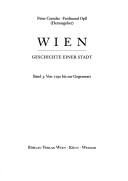
ISBN: 3205992687 9783205992684 Year: 2006 Publisher: Vienna, Austria; Cologne, Germany : Böhlau Verlag,
Abstract | Keywords | Export | Availability | Bookmark
 Loading...
Loading...Choose an application
- Reference Manager
- EndNote
- RefWorks (Direct export to RefWorks)
This volume is the last and final part of a trilogy on a detailed history of Vienna. It covers the period from 1790 until the present times. For the decisive forces as well as the inhabitants of the city this era of the urban development of Vienna has to be counted among the most dramatic periods characterised by a great number of real breaks in history. Napoleonic occupation, the revolution of 1848, the constitutional as well as the economic and social changes from the middle of the 19th century onwards, the final end of the position as "Reichshaupt- und Residenzstadt" (capital and residential city of the Austro-Hungarian empire) at the end of World War I, the challenging and complicated inter-war-period, Vienna's fate under Nazi-domination, the air raid of World War II and its end as well as the years after 1945 so far never described in such a comprehensive manner - all these events establish the chronological screen for the description and mark decisive incidents being treated here. In a chronological framework six authors arrange a pattern of Vienna's political, social, economic and cultural history. An innovative step is marked by the attempt to give a description of the ever so decisive periods like the "Fin-de-Siècle" and the complicated years after 1918 considering the intellectual mainstream and including men of letters and their works as contemporary witnesses and references. Vienna's development after 1945 - regarding the political history until the elections of 2001, the social and economic history in some aspects even furthermore - has not been treated in such a profound manner so far. This volume - as its predecessors - imparts the latest state of research to a wide public, supported by many illustrations and a large bibliography as well as a useful register of place names and persons. Der dritte und abschließende Band einer auf drei Bände konzipierten Stadtgeschichte beschäftigt sich mit dem Zeitraum von 1790 bis zur Gegenwart. Diese Epoche der Wiener Stadtentwicklung zählt für die gestaltenden Kräfte in der Stadt wie auch für deren Bewohnerinnen und Bewohner zweifellos zu den besonders dramatischen, von vielen regelrechten Brüchen charakterisierten Zeitspannen. Napoleonische Besetzung, die Revolution des Jahres 1848, die konstitutionellen wie die wirtschaftlichen und sozialen Veränderungen ab der Mitte des 19. Jahrhunderts, das Ende der Stellung als Reichshaupt- und Residenzstadt mit dem Ende des Ersten Weltkrieges, die schwierige Epoche der Zwischenkriegszeit, die Geschicke Wiens unter der NS-Herrschaft, die Bombenjahre des Zweiten Weltkrieges und dessen Ende wie natürlich auch die bislang noch niemals derart umfassend behandelten Jahre seit 1945 - all das bildet die Zeitfolie, vor der die Darstellung abläuft, markiert einschneidende Geschehnisse, denen sie sich widmet. Sechs Autorinnen und Autoren vermitteln in einem vom Grundsatz her chronologischen Aufbau ein Bild, das verwoben in die (politische) Ereignisgeschichte der sozialen, wirtschaftlichen und kulturellen Entwicklung breiten Raum einräumt. Dabei stellt der Versuch, die für Wien so prägenden Epochen des "Fin-de-Siècle" und dann der so ungemein schwierigen Jahre nach 1918 unter starker Berücksichtigung geistesgeschichtlicher Strömungen und mehrfach mittels des Einbaus literarischer Zeitzeugen bzw. -zeugnisse zu behandeln, einen methodisch durchaus innovativen Weg dar. Die Jahre der Wiener Entwicklung nach 1945, im Hinblick auf die politische Geschichte bis zur Gemeinderats- und Landtagswahl von 2001, bezüglich der sozialen und wirtschaftlichen Entwicklung in Ansätzen sogar noch darüber hinaus, haben bislang noch niemals in derart eingehender Form Darstellung gefunden. Wie schon bei den 2001 und 2003 vorgelegten Bänden 1 und 2 dieses dreibändigen Werkes gilt auch für den letzten Band das Bemühen, eine auch breiteren Kreisen zugängliche Darstellung zu bieten. Dies wird durch eine reiche Bebilderung, eine umfangreiche Bibliographie sowie ein Register der Orts- und Personennamen unterstützt.
Vienna (Austria) --- Wien (Austria) --- Vi︠e︡denʹ (Austria) --- Vedenʹ (Austria) --- Vena (Austria) --- Wiedëń (Austria) --- Bécs (Austria) --- Vindobona (Austria) --- Videnʹ (Austria) --- Vienne (Austria) --- Viena (Austria) --- Wienn (Austria) --- Dunaj (Austria) --- Wean (Austria) --- Wenen (Austria) --- Wina (Austria) --- Wene (Austria) --- Uigenna (Austria) --- فيينا (Austria) --- Fīyinnā (Austria) --- Vyana (Austria) --- Вена (Austria) --- Горад Вена (Austria) --- Виена (Austria) --- Beč (Austria) --- Fienna (Austria) --- Viin (Austria) --- Βιέννη (Austria) --- Вена ош (Austria) --- Vena osh (Austria) --- Vieno (Austria) --- Viene (Austria) --- Vín (Austria) --- Veen (Austria) --- 빈 (Austria) --- Венæ (Austria) --- Venæ (Austria) --- וינה (Austria) --- Ṿinah (Austria) --- Vienna (Reichsgau) --- History. --- History --- 943.6 WIEN --- 943.6 WIEN Geschiedenis van Oostenrijk--WIEN --- Geschiedenis van Oostenrijk--WIEN
Book
ISBN: 3701705569 Year: 1989 Publisher: Wien Residenz
Abstract | Keywords | Export | Availability | Bookmark
 Loading...
Loading...Choose an application
- Reference Manager
- EndNote
- RefWorks (Direct export to RefWorks)
72.038(436) --- Architectuur ; Wenen ; 2de h. 20ste eeuw --- Architectuur ; Oostenrijk --- Architectuurgeschiedenis ; 1950 - 2000 ; Oostenrijk --- Architecture --- History --- Vienna (Austria) --- Buildings, structures, etc. --- Wien (Austria) --- Vi︠e︡denʹ (Austria) --- Vedenʹ (Austria) --- Vena (Austria) --- Wiedëń (Austria) --- Bécs (Austria) --- Vindobona (Austria) --- Videnʹ (Austria) --- Vienne (Austria) --- Viena (Austria) --- Wienn (Austria) --- Dunaj (Austria) --- Wean (Austria) --- Wenen (Austria) --- Wina (Austria) --- Wene (Austria) --- Uigenna (Austria) --- فيينا (Austria) --- Fīyinnā (Austria) --- Vyana (Austria) --- Вена (Austria) --- Горад Вена (Austria) --- Виена (Austria) --- Beč (Austria) --- Fienna (Austria) --- Viin (Austria) --- Βιέννη (Austria) --- Вена ош (Austria) --- Vena osh (Austria) --- Vieno (Austria) --- Viene (Austria) --- Vín (Austria) --- Veen (Austria) --- 빈 (Austria) --- Венæ (Austria) --- Venæ (Austria) --- וינה (Austria) --- Ṿinah (Austria) --- Vienna (Reichsgau)
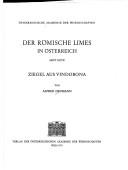
ISBN: 3700100175 Year: 1973 Publisher: Wien Österreichische Akademie der Wissenschaften
Abstract | Keywords | Export | Availability | Bookmark
 Loading...
Loading...Choose an application
- Reference Manager
- EndNote
- RefWorks (Direct export to RefWorks)
Romans --- Vienna (Austria) --- Antiquities, Roman. --- Ethnology --- Italic peoples --- Latini (Italic people) --- Wien (Austria) --- Vi︠e︡denʹ (Austria) --- Vedenʹ (Austria) --- Vena (Austria) --- Wiedëń (Austria) --- Bécs (Austria) --- Vindobona (Austria) --- Videnʹ (Austria) --- Vienne (Austria) --- Viena (Austria) --- Wienn (Austria) --- Dunaj (Austria) --- Wean (Austria) --- Wenen (Austria) --- Wina (Austria) --- Wene (Austria) --- Uigenna (Austria) --- فيينا (Austria) --- Fīyinnā (Austria) --- Vyana (Austria) --- Вена (Austria) --- Горад Вена (Austria) --- Виена (Austria) --- Beč (Austria) --- Fienna (Austria) --- Viin (Austria) --- Βιέννη (Austria) --- Вена ош (Austria) --- Vena osh (Austria) --- Vieno (Austria) --- Viene (Austria) --- Vín (Austria) --- Veen (Austria) --- 빈 (Austria) --- Венæ (Austria) --- Venæ (Austria) --- וינה (Austria) --- Ṿinah (Austria) --- Vienna (Reichsgau)
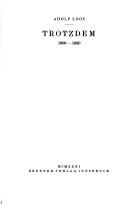
Abstract | Keywords | Export | Availability | Bookmark
 Loading...
Loading...Choose an application
- Reference Manager
- EndNote
- RefWorks (Direct export to RefWorks)
Architecture, Modern --- -Arts, Modern --- -Modern arts --- Modern architecture --- Vienna (Austria) --- -Intellectual life --- -History --- -Architecture, Modern --- Arts, Modern --- Architecture --- History --- Wien (Austria) --- Vi︠e︡denʹ (Austria) --- Vedenʹ (Austria) --- Vena (Austria) --- Wiedëń (Austria) --- Bécs (Austria) --- Vindobona (Austria) --- Videnʹ (Austria) --- Vienne (Austria) --- Viena (Austria) --- Wienn (Austria) --- Dunaj (Austria) --- Wean (Austria) --- Wenen (Austria) --- Wina (Austria) --- Wene (Austria) --- Uigenna (Austria) --- فيينا (Austria) --- Fīyinnā (Austria) --- Vyana (Austria) --- Вена (Austria) --- Горад Вена (Austria) --- Виена (Austria) --- Beč (Austria) --- Fienna (Austria) --- Viin (Austria) --- Βιέννη (Austria) --- Вена ош (Austria) --- Vena osh (Austria) --- Vieno (Austria) --- Viene (Austria) --- Vín (Austria) --- Veen (Austria) --- 빈 (Austria) --- Венæ (Austria) --- Venæ (Austria) --- וינה (Austria) --- Ṿinah (Austria) --- Vienna (Reichsgau) --- Intellectual life
Book
ISBN: 3110471299 3110474492 3110474484 3110473909 Year: 2016 Publisher: Berlin, [Germany] ; Boston, [Massachusetts] : De Gruyter,
Abstract | Keywords | Export | Availability | Bookmark
 Loading...
Loading...Choose an application
- Reference Manager
- EndNote
- RefWorks (Direct export to RefWorks)
1687 veröffentlichte der bayerische Rechtsgelehrte Anton Wilhelm Ertl den neulateinischen Roman Austriana regina Arabiae. Darin handelt er in allegorischer Form die Ereignisse rund um die 2. Wiener Türkenbelagerung von 1683 ab und betreibt Propaganda für das Haus Habsburg. Damit war der erste neulateinische Habsburgroman geboren. Dieser Band präsentiert den Text mit Übersetzung und einer Einführung in den neulateinischen (Habsburg-)Roman. In 1687, the jurist Anton Wilhelm Ertl published the Neo-Latin novel Austriana regina Arabiae. The novel is an allegorical treatment of the events surrounding the second Ottoman siege of Vienna starting in 1683, and it propagandizes for the House of Habsburg. The work marked the birth of the Neo-Latin Habsburg novel. This edition presents the text with German translation and an introduction to the Neo-Latin (Habsburg) novel.
Ertl, Anton Wilhelm. --- Habsburg. --- Neo-Latin. --- Neulatein. --- Roman. --- novel. --- LITERARY CRITICISM / European / German. --- Vienna (Austria) --- Wien (Austria) --- Vi︠e︡denʹ (Austria) --- Vedenʹ (Austria) --- Vena (Austria) --- Wiedëń (Austria) --- Bécs (Austria) --- Vindobona (Austria) --- Videnʹ (Austria) --- Vienne (Austria) --- Viena (Austria) --- Wienn (Austria) --- Dunaj (Austria) --- Wean (Austria) --- Wenen (Austria) --- Wina (Austria) --- Wene (Austria) --- Uigenna (Austria) --- فيينا (Austria) --- Fīyinnā (Austria) --- Vyana (Austria) --- Вена (Austria) --- Горад Вена (Austria) --- Виена (Austria) --- Beč (Austria) --- Fienna (Austria) --- Viin (Austria) --- Βιέννη (Austria) --- Вена ош (Austria) --- Vena osh (Austria) --- Vieno (Austria) --- Viene (Austria) --- Vín (Austria) --- Veen (Austria) --- 빈 (Austria) --- Венæ (Austria) --- Venæ (Austria) --- וינה (Austria) --- Ṿinah (Austria) --- Vienna (Reichsgau) --- History
Book
ISBN: 0191648566 9780191648564 9780199669790 0199669791 1322154058 0191648574 Year: 2014 Publisher: Oxford, [England] : Oxford University Press,
Abstract | Keywords | Export | Availability | Bookmark
 Loading...
Loading...Choose an application
- Reference Manager
- EndNote
- RefWorks (Direct export to RefWorks)
Seventeen stories from one of Europe's most enchanting cities.
Short stories, German --- Vienna (Austria) --- Wien (Austria) --- Vi︠e︡denʹ (Austria) --- Vedenʹ (Austria) --- Vena (Austria) --- Wiedëń (Austria) --- Bécs (Austria) --- Vindobona (Austria) --- Videnʹ (Austria) --- Vienne (Austria) --- Viena (Austria) --- Wienn (Austria) --- Dunaj (Austria) --- Wean (Austria) --- Wenen (Austria) --- Wina (Austria) --- Wene (Austria) --- Uigenna (Austria) --- فيينا (Austria) --- Fīyinnā (Austria) --- Vyana (Austria) --- Вена (Austria) --- Горад Вена (Austria) --- Виена (Austria) --- Beč (Austria) --- Fienna (Austria) --- Viin (Austria) --- Βιέννη (Austria) --- Вена ош (Austria) --- Vena osh (Austria) --- Vieno (Austria) --- Viene (Austria) --- Vín (Austria) --- Veen (Austria) --- 빈 (Austria) --- Венæ (Austria) --- Venæ (Austria) --- וינה (Austria) --- Ṿinah (Austria) --- Vienna (Reichsgau)
Book
ISBN: 1787446107 1640140670 Year: 2020 Publisher: Rochester, NY : Camden House,
Abstract | Keywords | Export | Availability | Bookmark
 Loading...
Loading...Choose an application
- Reference Manager
- EndNote
- RefWorks (Direct export to RefWorks)
An encyclopedic selection of original documents from the Austrian capital's pathbreaking, progressive interwar period, translated and with contextualizing introductions and commentaries.
Popular culture --- Culture, Popular --- Mass culture --- Pop culture --- Popular arts --- Communication --- Intellectual life --- Mass society --- Recreation --- Culture --- History --- Vienna (Austria) --- Wien (Austria) --- Vi︠e︡denʹ (Austria) --- Vedenʹ (Austria) --- Vena (Austria) --- Wiedëń (Austria) --- Bécs (Austria) --- Vindobona (Austria) --- Videnʹ (Austria) --- Vienne (Austria) --- Viena (Austria) --- Wienn (Austria) --- Dunaj (Austria) --- Wean (Austria) --- Wenen (Austria) --- Wina (Austria) --- Wene (Austria) --- Uigenna (Austria) --- فيينا (Austria) --- Fīyinnā (Austria) --- Vyana (Austria) --- Вена (Austria) --- Горад Вена (Austria) --- Виена (Austria) --- Beč (Austria) --- Fienna (Austria) --- Viin (Austria) --- Βιέννη (Austria) --- Вена ош (Austria) --- Vena osh (Austria) --- Vieno (Austria) --- Viene (Austria) --- Vín (Austria) --- Veen (Austria) --- 빈 (Austria) --- Венæ (Austria) --- Venæ (Austria) --- וינה (Austria) --- Ṿinah (Austria) --- Vienna (Reichsgau) --- Social policy
Book
ISBN: 1785331329 1785331337 Year: 2016 Publisher: New York ; London, [England] : Berghahn,
Abstract | Keywords | Export | Availability | Bookmark
 Loading...
Loading...Choose an application
- Reference Manager
- EndNote
- RefWorks (Direct export to RefWorks)
The Austrian Empire was not a colonial power in the sense that fellow actors like 19th-century England and France were. It nevertheless oversaw a multinational federation where the capital of Vienna was unmistakably linked with its eastern periphery in a quasi-colonial arrangement that inevitably shaped the cultural and intellectual life of the Habsburg Empire. This was particularly evident in the era’s colonial utopian writing, and Tropics of Vienna blends literary criticism, cultural theory, and historical analysis to illuminate this curious genre. By analyzing the works of Leopold von Sacher-Masoch, Theodor Herzl, Joseph Roth, and other representative Austrian writers, it reveals a shared longing for alternative social and spatial configurations beyond the concept of the “nation-state” prevalent at the time.
Austrian literature --- Utopias in literature. --- Colonies in literature. --- History and criticism. --- Utopian literature --- German literature --- Austrian authors --- Vienna (Austria) --- Intellectual life --- Wien (Austria) --- Vi︠e︡denʹ (Austria) --- Vedenʹ (Austria) --- Vena (Austria) --- Wiedëń (Austria) --- Bécs (Austria) --- Vindobona (Austria) --- Videnʹ (Austria) --- Vienne (Austria) --- Viena (Austria) --- Wienn (Austria) --- Dunaj (Austria) --- Wean (Austria) --- Wenen (Austria) --- Wina (Austria) --- Wene (Austria) --- Uigenna (Austria) --- فيينا (Austria) --- Fīyinnā (Austria) --- Vyana (Austria) --- Вена (Austria) --- Горад Вена (Austria) --- Виена (Austria) --- Beč (Austria) --- Fienna (Austria) --- Viin (Austria) --- Βιέννη (Austria) --- Вена ош (Austria) --- Vena osh (Austria) --- Vieno (Austria) --- Viene (Austria) --- Vín (Austria) --- Veen (Austria) --- 빈 (Austria) --- Венæ (Austria) --- Venæ (Austria) --- וינה (Austria) --- Ṿinah (Austria) --- Vienna (Reichsgau)
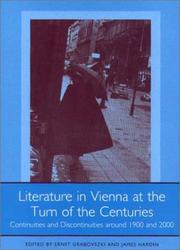
ISBN: 1571132333 9786611862879 1281862878 157113607X Year: 2003 Publisher: Rochester, NY : Camden House,
Abstract | Keywords | Export | Availability | Bookmark
 Loading...
Loading...Choose an application
- Reference Manager
- EndNote
- RefWorks (Direct export to RefWorks)
This book of new essays by widely-published scholars from the United States, Great Britain, Germany, and Austria examines the artistic, social, political, and historical continuities and discontinuities in Viennese literature during the periods around 1900 and 2000. It takes its impetus from the idea that both turns of the century are turning points in the development of Austrian literature and history. The essays show that in both periods literature not only reflects societal conditions and political issues, but also serves to criticize them. Ernst Grabovszki's introduction sets the context of literature in Vienna in 1900 and 2000, and is followed by essays exploring the following topics bearing on the city's literature across the two periods: writing about Vienna (Janet Stewart); art and architecture (Douglas Crow); psychoanalysis and the literature of Vienna (Thomas Paul Bonfiglio); poetry in Vienna from Hofmannsthal to Jandl (Rüdiger Görner); Austrian cinema culture (Willy Riemer); Austrian-Jewish culture (Hillary Hope Herzog and Todd Herzog); Austrian women's writing (Dagmar C. G. Lorenz); Karl Kraus and Robert Menasse as critical observers of their times (Geoffrey C. Howes); and Venice as mediator between the Viennese metropolis and the provinces (John Pizer). The figures treated range from Arthur Schnitzler, Hugo von Hofmannsthal, Sigmund Freud, Theodor Herzl, Karl Kraus, Peter Altenberg, Franz Grillparzer, Joseph Roth, Bertha von Suttner, and Marie von Ebner-Eschenbach in the earlier fin de siècle to Elfriede Jelinek, Robert Schindel, Robert Menasse, Josef Haslinger, Ernst Jandl, Friedensreich Hundertwasser, and Marlene Streeruwitz in the current period. Ernst Grabovszki teaches at the University of Vienna. James Hardin is professor emeritus of German at the University of South Carolina.
Austrian literature --- 19th century --- History and criticism --- 20th century --- Vienna (Austria) --- Intellectual life --- Civilization --- History and criticism. --- Intellectual life. --- Civilization. --- Wien (Austria) --- Vi︠e︡denʹ (Austria) --- Vedenʹ (Austria) --- Vena (Austria) --- Wiedëń (Austria) --- Bécs (Austria) --- Vindobona (Austria) --- Videnʹ (Austria) --- Vienne (Austria) --- Viena (Austria) --- Wienn (Austria) --- Dunaj (Austria) --- Wean (Austria) --- Wenen (Austria) --- Wina (Austria) --- Wene (Austria) --- Uigenna (Austria) --- فيينا (Austria) --- Fīyinnā (Austria) --- Vyana (Austria) --- Вена (Austria) --- Горад Вена (Austria) --- Виена (Austria) --- Beč (Austria) --- Fienna (Austria) --- Viin (Austria) --- Βιέννη (Austria) --- Вена ош (Austria) --- Vena osh (Austria) --- Vieno (Austria) --- Viene (Austria) --- Vín (Austria) --- Veen (Austria) --- 빈 (Austria) --- Венæ (Austria) --- Venæ (Austria) --- וינה (Austria) --- Ṿinah (Austria) --- Vienna (Reichsgau)
| Listing 1 - 10 of 44 | << page >> |
Sort by
|

 Search
Search Feedback
Feedback About UniCat
About UniCat  Help
Help News
News